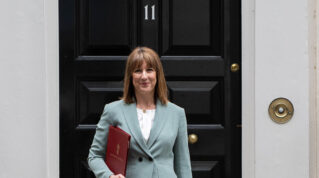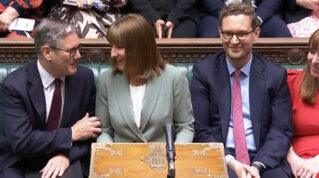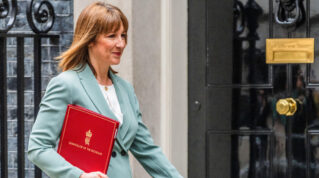The government has announced the funding rate for universal infant free school meals will increase by 7p per meal this year, a rise of less than half of the current rate of inflation.
The increase amounts to a £13.30 more per year in funding for around 1.3 million pupils.
The Department for Education confirmed today that the rate for the 2022-23 financial year will be £2.41 per meal, up from £2.34 last year (a rise of around 3 per cent).
This works out at £457.90 per pupil per year, up from £444.60 in 2021-22.
The government said the rise, which would cost £18 million, was made “in recognition of the rising cost of living”.
However, the Consumer Prices Index rose by 7.8 per cent in the 12 months to April 2022, meaning today’s announcement falls far short of an inflation-related rise.
Although the financial year begins in April each year, free school meals funding and allocations are calculated in the summer, based on the number of pupils taking a meal in the January school census, and then backdated to April.
The announcement today follows repeated calls to raise the rate of funding available to schools, which face rising energy and food bills.
LACA, the industry body for school caterers, claimed its members were seeing average food price increases of 20 per cent. A spokesperson said the 2.9 per cent increase in funding was “therefore inadequate”.
“Many of our members are at breaking point, the industry needs meaningful investment.”
Dr Patrick Roach, general secretary of the NASUWT teaching union, said the announcement was “welcome”, but “does not go nearly far enough to meet the significant and rapidly growing number of children and young people of all ages who are in need”.
“Without increased investment in expanding free school meal eligibility and action to tackle the cost of living crisis from this government, many more pupils risk having their health and welfare damaged.”
No word yet on means-tested meals funding
Education secretary Nadhim Zahawi said the government was increasing funding for universal infant free school meals “because we know that more can be done in the face of rising costs”.
The announcement today only applies to funding for universal infant free school meals, which is paid as a specific grant, and not to means-tested meals for other pupils.
Funding for means-tested meals is allocated through schools’ core budgets, and ministers confirmed last year that the amount paid out would rise to £470 per pupil in 2022-23.
According to the latest DfE data, there were around 1.6 million infant pupils recorded as taking a meal on census day, of whom around 1.3 million are not eligible for means-tested meals.
Around 1.9 million pupils of all ages were eligible for means-tested meals as of this January, an increase of 160,000, or 9 per cent on last year. Since the beginning of the pandemic, the number of eligible children has risen by 32 per cent.
It also comes after the government ignored calls to widen free school meals eligibility to all households earning less than £20,000 a year. In its final food strategy document, the government pledged only to “continue to keep free school meal eligibility under review”.
The DfE has also today announced a “call to arms” for more support for the holiday activities and food programme, which provides clubs and meal schemes for six weeks of holidays in the Easter, summer and Christmas breaks.
Zahawi said he had “seen some incredible support from organisations across the country for our holiday activities and food programme, and I wanted to celebrate the action they are already taking in local communities to support disadvantaged children and their families.
“Together I have no doubt that we can do more.”
















Your thoughts